Every generation is molded by the experiences, events and technologies unfolding during that era. Therefore it makes sense that every generation reflects its own unique set of core values and beliefs. The same holds true in the workplace. What worked to motivate and manage one generation at work or in their place of business may not necessarily work to motivate and manage the next generation.
Top leaders are at risk of losing Gen Z in the workplace if they fail to understand and embrace the fact that this generation has a completely new and unique set of core values and beliefs and are motivated by different needs than earlier generations.
Herald as the most technologically advanced, highly educated demographic, Generation Z began entering the workforce in 2019. With an estimated 65 million Gen Zers globally, including nine million in the U.S., Gen Z will comprise 30 percent of the U.S. workforce by 2030. This is a significant presence and older generations need to keep these younger workers motivated, engaged and satisfied at work, or risk costly turnover.
Many top leaders today are finding managing Gen Z’s new set of identified needs to be challenging. They are more accustomed to managing and communicating with Gen X and older Millennials.
This is partly due to Baby Boomers, Gen Xers and older Millennials sharing several common generational core values and beliefs. For example, the majority were raised to believe a “traditional” work day begins at 8:00 AM, and goes to 5:00 PM, with two breaks and a lunch. Many top leaders are disillusioned to learn their tested and true management style is now antiquated. One-size does not fit all when it comes to meeting the professional needs of the youngest generation.
By understanding key managing mistakes made by top leaders managing Gen Z employees, you can work to avoid similar situations and possibly keep Gen Z employees from costly job hopping within one to two years.

Key Gen Z Managing Mistakes Made by Top Leaders:
According to a May 31, 2021, Business2community.com article by Clair Kim, “Leading Millennials + Gen Z Employees? Here are Top Mistakes That Leaders Make When Working With Them.”, the following four items top the list of potential missteps leaders and managers make managing Gen Z:
Be Careful Not To Dump Generations Into the Same Bucket
Senior leaders have the tendency of focusing on the negative stereotypes of different generations, thus blaming and pointing fingers, ultimately dumping both demographics together. But Millennials and Gen Zers are very different with different generational core values and beliefs. When leaders group generations together, they lead with a misplaced bias which affects the way managers handle Millennial and Gen Z employees on a daily basis. Assuming Millennials and Gen Zers are “the same” leads to misunderstanding and misrepresenting them, ultimately making it more difficult to manage them.
Avoid Stereotyping Employees Based Solely by Their Generation
Don’t miss out on Gen Zers’ human component by stereotyping them to their generation. Assuming Gen Zers only want to be plugged-in 24/7 is a mistake. According to a staffbase.com blog, “Gen Z in the Workplace: 5 Ways to Manage Every Generation,” one of Gen Z’s key motivators at work is face-to-face communication with their professional leaders, managers and peers. Using knowledge of an individual employee’s generation as general information is great but type-casting individuals to their generation and then using that knowledge as the basis for how that individual is treated is a mistake.
Realize Each Generation has Unique “Societal Norms” that Dictate Behavior
According to Kim, “Misunderstanding that generations are just broken-down into that segment’s identified “societal norms,” that have been ingrained into them since childhood, creates a communication barrier. Younger generation’s unique norms create certain behaviors that managers from older generations may not understand.” For example: Baby Boomers may not understand the marketing strategy behind Gen Zers’ creating company Instagram videos or their need for daily, professional on-boarding and job training. This lack of understanding can lead to confusion, disdain and even irritation.
Keep in mind that each generation grew up under a different set of societal norms and their behaviors reflect these norms. This can make it easier to manage G Zers. Kim states, “Managers who are accepting of variations in employee behaviors are better able to develop lines of authentic communication with direct reports.”
Ask Questions
Develop connections with the youngest generation in the workplace by engaging in meaningful conversations on various generational topics. Gen Zers view this interpersonal communication in a positive light and actually crave one-on-one meetings with their managers and peers. Gen Z is accustomed to face-to-face being in the form of actually physically meeting or in the form of mobile devices (facetime) or zoom meetings.
Many leaders may feel intimidated or put off by the age gap between generations. These feelings of uncertainty can lead to mistakes. Mistakes can cause Gen Zers to disrespect their manager(s) and quit. Be sure to make time to get to know your youngest employees—it can pay off big in employee retention.

I compiled the following lists of “Don’ts” and “Do’s” from multiple articles and sources. The following are tips to keep in mind when managing a Gen Z employee:
DON’T:
Obsess Over Generation Gap—Find Common Ground
Be aware Gen Zers are more racially and ethnically diverse than previous generations and are poised to be the most educated generation to date. With little or no memory of the world before smartphones, they have been dubbed “digital natives” by Pew Research. Avoid mistaking the significant age difference and level of digital prowess as communication barriers. One shared core value or area of common ground between Baby Boomers and Gen Zers is their desire to work on meaningful projects that deliver positive, long-lasting impacts. Start on common ground.
Assume Gen Z Views Technology the Same as Older Generations
Gen Z is the first generation to grow up in a technology-saturated world. Everything from watches and phones to kitchen appliances, televisions and cars are “smart.” While Millennials grew up with the internet, Facebook and YouTube, Gen Z grew up with social media, TikTok, Instagram and virtual reality gaming systems. For this reason, Gen Zers view their mobile devices as extensions of themselves. To them their phone is their identity. Consider integrating an Employee App.
Underestimate the Importance of Face-to-Face Communications
Ironically, even though Gen Zers grew-up with the most online and social media of any generation, seemingly plugged-in 24/7, they still prefer personal, face-to-face interaction in the workplace. Primarily referred to as the informal generation, placing official distance between managers and Gen Zers can create a tense environment for Gen Zers to work in.
- Gen Z employees crave daily one-on-one feedback.
- Schedule daily one-on-ones with your Gen Z employees to ensure peak performance.
Force Antiquated Start/Stop Work Hours
The COVID-19 pandemic caused government work-at-home mandates. This changed the way people conducted business and business meetings. Working remotely became embraced as the norm and zoom meetings took the place of on-site boardroom meetings.
Gen Zers have always realized information can be researched and shared anytime and anywhere, therefore they prefer to work flexible hours that support a healthy work-life balance. You may need to adjust your expectation of an 8:00 AM to 5:00 PM work day in order to meet their employment needs and cultivate a positive workflow atmosphere.
Bankrate senior economic analyst Mark Hamrick expressed to CNBC Make It, “Gen Z and Millennials are the most mobile participants in the workforce for a number of reasons. They aren’t making as much money as their older, more senior counterparts, so they’re more eager to find higher paid jobs, and they tend to be more technologically savvy, so they’re in a better position to take advantage of remote work opportunities.”
A September 7, 2021, survey conducted by Bankrate and YouGov Plc, including 2,452 adults in the U.S. workforce, meaning they’re currently working or actively looking for employment, from July 28 to July 30, supports this trend as about 72% of respondents earning less than $30,000 per year said they are planning to look for a new job.
Mistake Salary as Gen Z’s Top Motivator
Gen Zers know their value and while it’s not their number one job priority, they most assuredly come prepared to negotiate. An August 3, 2021, blog by Thomas O’Shaughnessy, titled, “Reality Check: Exploring Unrealistic Undergraduate Salary Expectations,” reveals the average Gen Z undergraduate expects to earn a salary of $57,964 one year out of college, but the national median salary for recent grads with bachelor degrees and less than five years of experience is only $47,000.

DO:
Become Accessible
- Schedule daily ‘touch base’ meetings on a mobile device, if not possible to conduct in-person.
- Keep an open door policy.
Become Aware
- Coined “the loneliest generation”— Experience Mental Health Challenges.
- Foster feelings of isolation and depression spending endless hours online.
- Risk falling prey to the “compare and despair” trap that social media presents.
Become a Coach
Gen Zers expect and welcome training and coaching over salary so be sure to invest time, especially during their on-boarding experience.
- Provide daily and ongoing feedback.
- Recognize contributions and accomplishments.
- Be a professional development resource.
- Consider utilizing an on-boarding checklist or on-boarding online training solution:
- Effective employee on-boarding goes beyond the first day and can improve retention by 82% and productivity by over 70 percent.
- Despite these findings, the latest Gallup “State of the American Workplace Report” found only one in ten employees felt their organization did a good job with on-boarding.
Encourage Authenticity:
Current world events and misinformation everywhere makes Gen Zers less trusting of government and authority. Managers who develop a trusting working relationship with your Gen Z team will help ensure optimum work success.
Be prepared to manage the whole person, including their mental well-being.
Embrace Technology
Generation Z was raised on technology. This generation was on social media as young children when smartphones were just beginning to take traction in the marketplace. They anticipate, expect and require the organization they join to offer updated and new technologies.
Research and invest in new technologies to improve your Gen Zs’ work experience. Or better, let technology be their motivation and get their input on how workflow may be improved with online solutions.
Discuss Growth Opportunities
Be sure to discuss and illustrate growth opportunities within the organization and help them reach their professional goals and career potential.

Real Life Examples Of Mistakes Leaders Have Made Managing Generation Z:
The November 22, 2021, article in The New York Times, “Remote Working is Failing Younger Generations,” by Anne Helen Petersen and Charlie Warzel, provides several real life testimonies from Gen Zers on how disillusioned they are or were in their first job.
The article’s first example highlights a Gen Zer named Kiersten, who graduated from college straight into the middle of COVID-19 and a precarious job market. She landed an entry-level, work from home job. Kiersten explains how unremarkable her big first day on the job was. How on-boarding consisted of endless Zoom training sessions, which although she commented how the sessions were helpful, she admitted to feeling the sessions were also “very formal, with little room for socializing.” She continued, “I just stared at their Zoom boxes and willed us to be friends, but we never had the opportunity to interact.”
The article discussed how Kiersten states feeling isolated from the company and felt their remote policies were chaotic. To chat, employees used an outdated version of Skype; in Zoom meetings, almost all co-workers left their cameras off. She confessed to “obsessively stalking” her company’s reviews, just to try to get a sense of the company culture. According to the article, Kiersten was, by her own admission, unmourned, totally unmentored and insecure, with no way to learn from her colleagues. Kiersten added, “It’s one thing to start a new job remotely. It’s another to start your entire career that way. I was shocked at how all the skills I had learned on how to navigate this type of environment in person evaporated remotely.”
Anne Helen Petersen and Charlie Warzel share similar stories from early career workers who’ve felt adrift during COVID-19. They explained how all were grateful to be employed, but many felt left behind and, in some cases, unsure about how to actually do their jobs.
When the pandemic hit, top leaders and managers were expected not only to acclimate to working remotely, but also, with Gen Zers, to train, manage and motivate employees. Many companies have been able to adapt to remote workflows, but fast-paced work environments offer little time for sufficiently mentoring young professionals.
The article also revealed most Generation Z newcomers are terrified of messing up and hesitant to ask questions. Haziq, a 22-year-old living in Ireland shared, “I think I’m missing out on a lot of the soft skills that one picks up in the first few years of working.” He’s found it nearly impossible to socialize with colleagues and lacks the confidence to ask his manager or teammates questions. “If I was sitting next to my manager, I could just have a quick chat and move on. But I’m much less likely to Slack my manager and ask something because I don’t know what they’re up to at the moment. The amount of on-the-job learning has reduced dramatically.”
The take-away is working remotely has its perks but Gen Z craves and seeks a complete work experience where they can communicate, collaborate, interact and grow within a supportive company.
Mistakes are bound to happen when managing Generation Z, and based on my research, it happens quite frequently. You can reduce leadership mistakes by investing time, interacting with and really getting to know your Gen Z employee(s).
No one said understanding, motivating and managing Generation Z’s unique though challenging set of professional needs would be easy. However with 65 million Gen Zers globally, and nine million in the U.S., they have or are about to enter the workforce. It is certainly worth it to your bottom-line to make management-style adjustments to successfully recruit, hire, manage, motivate and retain this highly talented and extremely educated generation.
Sources:
- https://www.biospace.com/article/generational-priorities-what-baby-boomers-gen-xers-and-millennials-think-makes-an-ideal-employer/
- https://www.zenefits.com/workest/how-to-motivate-generation-z-at-work/
- https://www.adeccousa.com/employers/resources/generation-z-vs-millennials-infographic/.%20feb%209,%202022./
- https://staffbase.com/blog/generation-z-in-the-workplace-5-ways-to-be-a-better-employer/.
- https://www.biospace.com/article/generational-priorities-what-baby-boomers-gen-xers-and-millennials-think-makes-an-ideal-employer/
- https://www.google.com/amp/s/www.cnbc.com/amp/2021/09/03/gen-z-and-millennial-workers-are-leading-the-latest-quitting-spree-.html
- https://www.zenefits.com/workest/how-to-motivate-generation-z-at-work/
- https://www.inc.com/marcel-schwantes/generation-z-is-here-3-simple-tips-leaders-need-to-know-to-keep-them-from-leaving.html
- https://www.business2community.com/human-resources/leading-millennial-gen-z-employees-here-are-top-mistakes-that-leaders-make-when-working-with-them-02408720
- https://www.adeccousa.com/employers/resources/generation-z-vs-millennials-infographic/
- https://www.google.com/amp/s/finance.yahoo.com/amphtml/news/42-gen-z-prioritize-life-161927571.html
- https://www.wgu.edu/blog/who-is-gen-z-how-they-impact-workplace1906.html#close
- https://knowledge.wharton.upenn.edu/article/make-room-generation-z-workplace
- https://firstup.io/blog/gen-z-in-the-workplace/
- https://staffbase.com/blog/generation-z-in-the-workplace-5-ways-to-be-a-better-employer/
- https://yello.co/blog/how-to-best-manage-gen-z-in-the-workplace/
- https://www.pewresearch.org/social-trends/2018/11/15/early-benchmarks-show-post-millennials-on-track-to-be-most-diverse-best-educated-generation-yet/
- https://www.pewresearch.org/internet/2018/05/31/teens-social-media-technology-2018/

